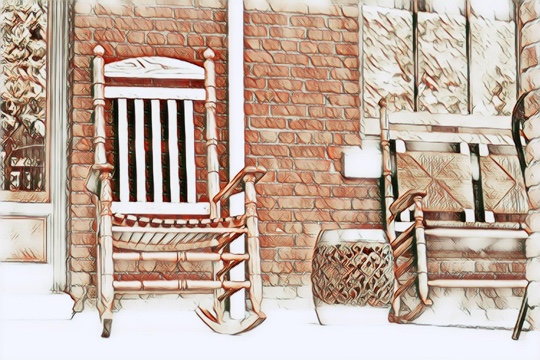
During my recent wanderings in Oakland, I came across a parking sign that promised a “Contactless” experience, which got me thinking about the concept of contactless in our world today. It’s a term we hear quite often, either explicitly stated or implied by barriers, plexiglass, or the absence of human presence. As usual, I have some questions about this phenomenon:
- What is contactless, exactly?
- Do we want a contactless world?
- Is contactless inherently good or bad?
- What are the social implications of contactless?
According to the definition, contactless refers to anything that doesn’t involve physical contact or direct interaction, such as technology that enables a smart card or mobile phone to connect wirelessly to an electronic reader, often for making payments.
I understand the need for social distancing during the pandemic and think it’s a sensible approach. I have also always been a fan of minimizing human contact by using self-service checkout lanes, vending machines, and other forms of automation. Although I lean towards avoiding human interaction, there are moments when I can be very good at engaging with people under any circumstances. I am torn between celebrating a contactless world and recognizing that it may not be a good thing.
When I contemplate who contactless is for and what it is, I find myself in some uncomfortable places. At first glance, contactless is meant to prevent the spread of a virus, which is a positive thing. However, contactless didn’t start in 2020. Self-service and contactless mobile experiences have been evolving for some time now. Although I believe contactless is intended for consumers, I think it’s more for business reasons than for us. There are many financial, labor, and other concerns intertwined with the idea of contactless.
Each contactless interaction generates one more data point to surveil, resulting in yet another digital cord attached to your digital self. Every contactless transaction throughout your day adds up, generating timestamps, surveillance photos, biometric data, and other information. While a coffee order placed with a human and paid for with cash may be captured on a security camera, the interaction does not appear on my permanent digital record. These data accumulations have significant consequences, and we have yet to discuss how they are used to shape our lives.
Human interaction is crucial. We know it is essential for the development of children and continues to be important throughout our lives. It can be what keeps us alive for a long time. Losing contact with one another seems like it would be harmful to humanity. It feels like it would remove the lubricant we need to function as communities and as a society. I will spend time looking into research in this area. I am genuinely interested in understanding the impact that mobile devices are having, as well as how this phenomenon has escalated during the pandemic.
I find it increasingly challenging to interact with people in public because I don’t do it as much as I used to. I’m out of practice. Although I still have the ability to engage when necessary as part of my job or while out in public, I just don’t do it as often. It feels like one of the missing nutrients in my life these days. Contactless feels like scurvy or some sort of vitamin deficiency to me. It’s something I used to have in abundance during my younger years, but it’s missing now. Contactless is a difficult topic to wrap my head around. I’ll need to spend more time thinking about it to understand it better.
